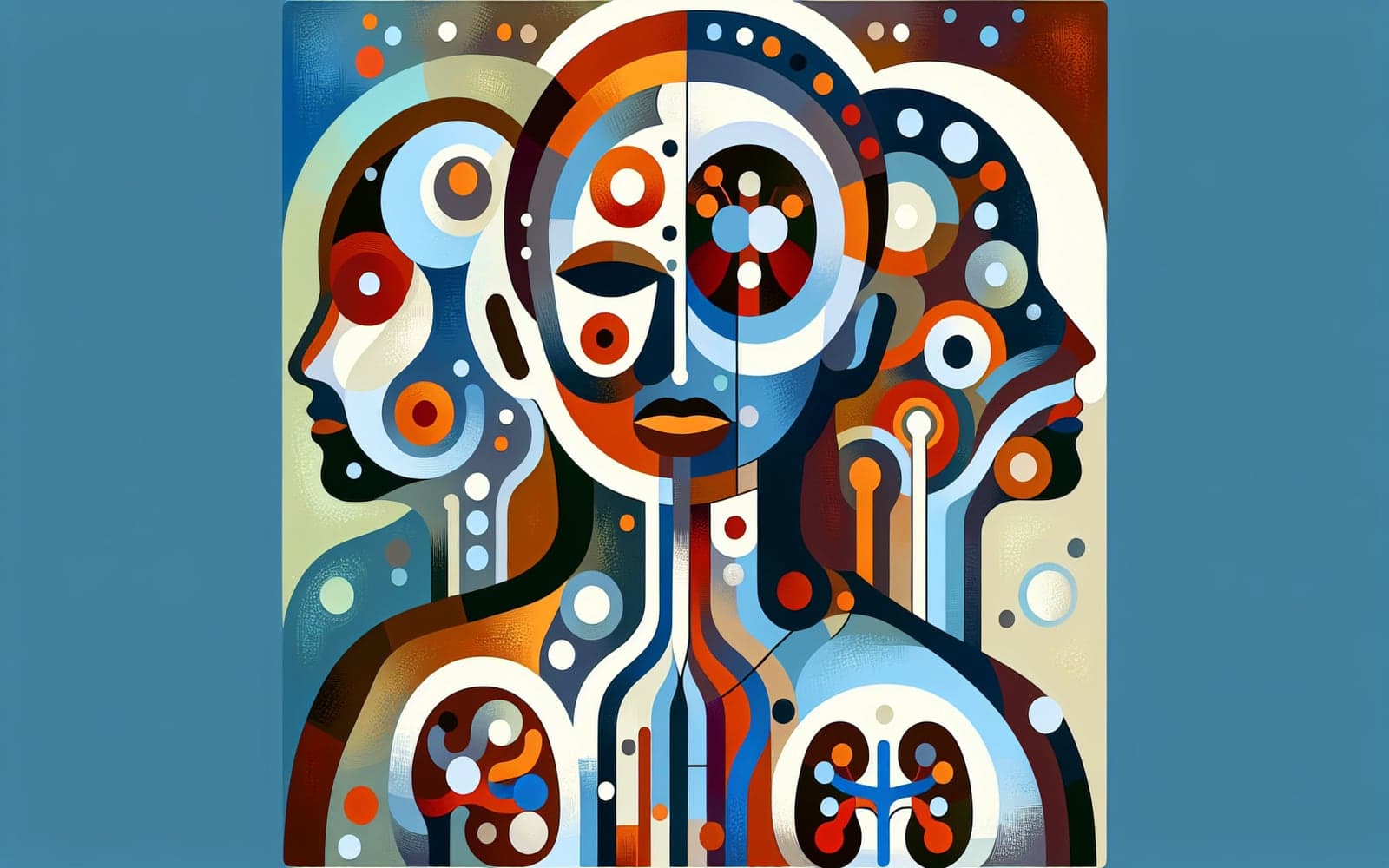Chronic Kidney Disease: What You Need to Know
Chronic Kidney Disease: What You Need to Know
The Silent Threat
Chronic kidney disease (CKD) is a condition that affects millions worldwide, often without obvious symptoms. Understanding CKD is crucial for early detection and management.
Contents
- What is Chronic Kidney Disease?
- Stages of CKD
- Symptoms and Complications
- Treatment and Management
What is Chronic Kidney Disease?
CKD occurs when your kidneys are damaged and can't filter blood properly. This damage can happen slowly over time, usually due to conditions like diabetes or high blood pressure. The key sign of CKD is decreased kidney function, measured by how well your kidneys filter waste from your blood.
Stages of CKD
CKD is classified into five stages based on how well your kidneys are working. Stage 1 is mild damage with normal kidney function, while Stage 5 is kidney failure requiring dialysis or transplant. Your doctor can determine your stage using blood and urine tests.

Symptoms and Complications
Early CKD often has no symptoms, which is why it's called a 'silent' disease. As it progresses, you might experience fatigue, swelling in your feet and ankles, or changes in urination. CKD can lead to serious complications like heart disease, anemia, and bone problems if left untreated.
Treatment and Management
While there's no cure for CKD, treatment can slow its progression. This may include controlling blood pressure, managing diabetes, and making lifestyle changes like quitting smoking and maintaining a healthy diet. In advanced stages, dialysis or kidney transplant may be necessary.
FAQs
Can CKD be prevented?
Yes, by controlling risk factors like diabetes and high blood pressure.
How often should I get tested for CKD?
Annually if you're at high risk, or as recommended by your doctor.
Is CKD reversible?
Early stages can sometimes be reversed with proper treatment.
Can I live a normal life with CKD?
Yes, with proper management and lifestyle adjustments.
Does everyone with CKD need dialysis?
No, only those with advanced kidney failure require dialysis.
Take Control of Your Kidney Health
Understanding CKD is the first step towards better kidney health and overall well-being.
Additional References
- National Kidney Foundation. K/DOQI clinical practice guidelines for chronic kidney disease: evaluation, classification, and stratification. Am J Kidney Dis 2002; 39:S1.
- Kidney Disease: Improving Global Outcomes (KDIGO) CKD Work Group. KDIGO 2012 Clinical Practice Guideline for the Evaluation and Management of Chronic Kidney Disease. Kidney Int Suppl 2013; 3:1.
- Astor BC, Muntner P, Levin A, et al. Association of kidney function with anemia: the Third National Health and Nutrition Examination Survey (1988-1994). Arch Intern Med 2002; 162:1401.
This article has been reviewed for accuracy by one of the licensed medical doctors working for Doctronic.











